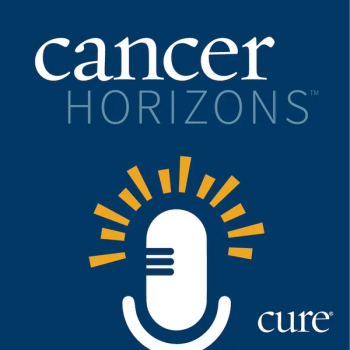
From the death of “America’s Got Talent” contestant Jane “Nightbirdie” Marczewski to “Good Morning America” anchor Robin Roberts announcing her partners breast cancer diagnosis, here’s what’s happening in the cancer space this week.

Ryan McDonald, Associate Editorial Director for CURE®, has been with the team since February 2020 and has previously covered medical news across several specialties prior to joining MJH Life Sciences. He is a graduate of Temple University, where he studied journalism and minored in political science and history. He considers himself a craft beer snob and would like to open a brewery in the future. During his spare time, he can be found rooting for all major Philadelphia sports teams. Follow Ryan on Twitter @RMcDonald11 or email him at [email protected].

From the death of “America’s Got Talent” contestant Jane “Nightbirdie” Marczewski to “Good Morning America” anchor Robin Roberts announcing her partners breast cancer diagnosis, here’s what’s happening in the cancer space this week.

Sara Montiel says she experienced severe body image issues after her breast cancer diagnosis and subsequent double mastectomy, but she now recalls how she learned to realize how cancer was a blessing.

Although the data failed to identify a predictive biomarker in patients with advanced kidney cancer, an expert from Memorial Sloan Kettering Cancer Center in New York notes that the results indicate that no one should be excluded from receiving Lenvima plus Keytruda.

Single-agent adagrasib was associated with encouraging treatment responses in patients with previously treated non-colorectal gastrointestinal tumors and pancreatic ductal adenocarcinoma.

Patients with biliary tract cancer achieved a better survival outcome after receiving treatment with an oral antimetabolite following surgical resection than patients who only were treated with surgery.

A group of patients with microsatellite-stable, treatment-refractory metastatic colorectal cancer experienced responses to treatment with Keytruda plus Mektovi and Avastin.

The use of Enhertu was associated with a reduction in the risk of death compared with standard chemotherapy in certain patients with gastroesophageal and gastric cancer.

Treatment with Calquence resulted in fewer toxicities, including atrial fibrillation, flutter and hypertension, in patients with previously treated chronic lymphocytic leukemia, compared with Imbruvica treatment, according to findings from the analysis of a phase 3 trial.

The use of Faslodex plus the investigational drug samuraciclib was considered safe in individuals with heavily pretreated hormone receptor-positive breast cancer.

The FDA’s recent greenlight of a new Keytruda indication gives a large group of patients with melanoma access to a treatment option that they didn’t previously have, says an expert from the UPMC Hillman Cancer Center.

Two different doses of Venclexta combined with Darzalex and the steroid dexamethasone elicited effective responses appeared safe in patients with t(11;14) relapsed/refractory multiple myeloma.

Using the presence of minimal residual disease to direct Imbruvica plus Venclexta treatment appears to be a feasible option for patients with relapsed/refractory chronic lymphocytic leukemia.

The use of pyrotinib — an experimental drug — plus the chemotherapy capecitabine extended survival compared with Tykerb and capecitabine among patients with pretreated HER2-positive metastatic breast cancer.

Early-phase study results showed that treatment with a novel drug elicits promising outcomes in patients with advanced or metastatic triple-negative breast cancer.

The use of elacestrant, an investigational therapy, elicited a 30% reduction in the risk of disease progression or death compared with standard of care in a group of patients with estrogen receptor (ER)–positive, HER2-negative metastatic breast cancer.

Black race is associated with a 3.5-fold increased incidence of lymphedema in women with breast cancer treated with axillary lymph node dissection and radiotherapy, according to recent data.

Imfinzi plus platinum-pemetrexed chemotherapy induced survival improvements in patients with previously untreated, unresectable malignant pleural mesothelioma, compared with chemotherapy alone.

From microbiome-based therapies to reinventing an old drug and more, an expert from City of Hope explains the interest around emerging treatment options and approaches in metastatic kidney cancer.

The FDA’s recommendations are aimed at helping individuals and patients with breast cancer make better informed decisions about the decision to receive breast implants, according to experts.

Colin Powell has died of complications from COVID-19 after receiving treatment for a blood cancer.

The genetic testing procedure may aid people with a history of hereditary cancer from passing those genetic mutations on to future children.

There’s a tremendous amount of interest in immunotherapy drugs given alongside targeted therapies for patients with pancreatic cancer, according to an expert.

An expert discusses two primary unmet needs in myelofibrosis, current treatments and new approaches to this complex disease.

One of the more prevalent misconceptions about inherited cancer mutations is that genetic testing is only for White people, according to a genetic counselor.

Here’s what patients should know about the recent FDA approval of Exkivity, the first oral therapy for patients with non-small cell lung cancer who have EFGR exon 20 insertion mutations.

The FDA approval of Brukinsa represents another treatment option with fewer side effects in patients with Waldenstrom's macroglobulinema, however it will not serve as a replacement for other therapies.

A retired New York City firefighter recalls his return to the city he once served for more than three decades on the day prior to the 9/11 terrorist attacks and all that followed, including his several bouts with lung cancer years after the dust had settled.

The FDA approval of Brukinsa, according to an expert from the Dana-Farber Cancer Institute, provides an important new option for targeted therapy in Waldenstrom’s macroglobulinemia.

Researchers are evaluating the safety and efficacy of zandelisib, an investigational cancer therapy, for the treatment of patients with marginal zone lymphoma and follicular lymphoma who have received at least two prior therapies.

Preliminary results of the phase 2 trial assessing the safety and efficacy of Cosela with gemcitabine/platinum-based chemotherapy and Bavencio maintenance therapy for metastatic bladder cancer are expected to be released in the second half of 2022.